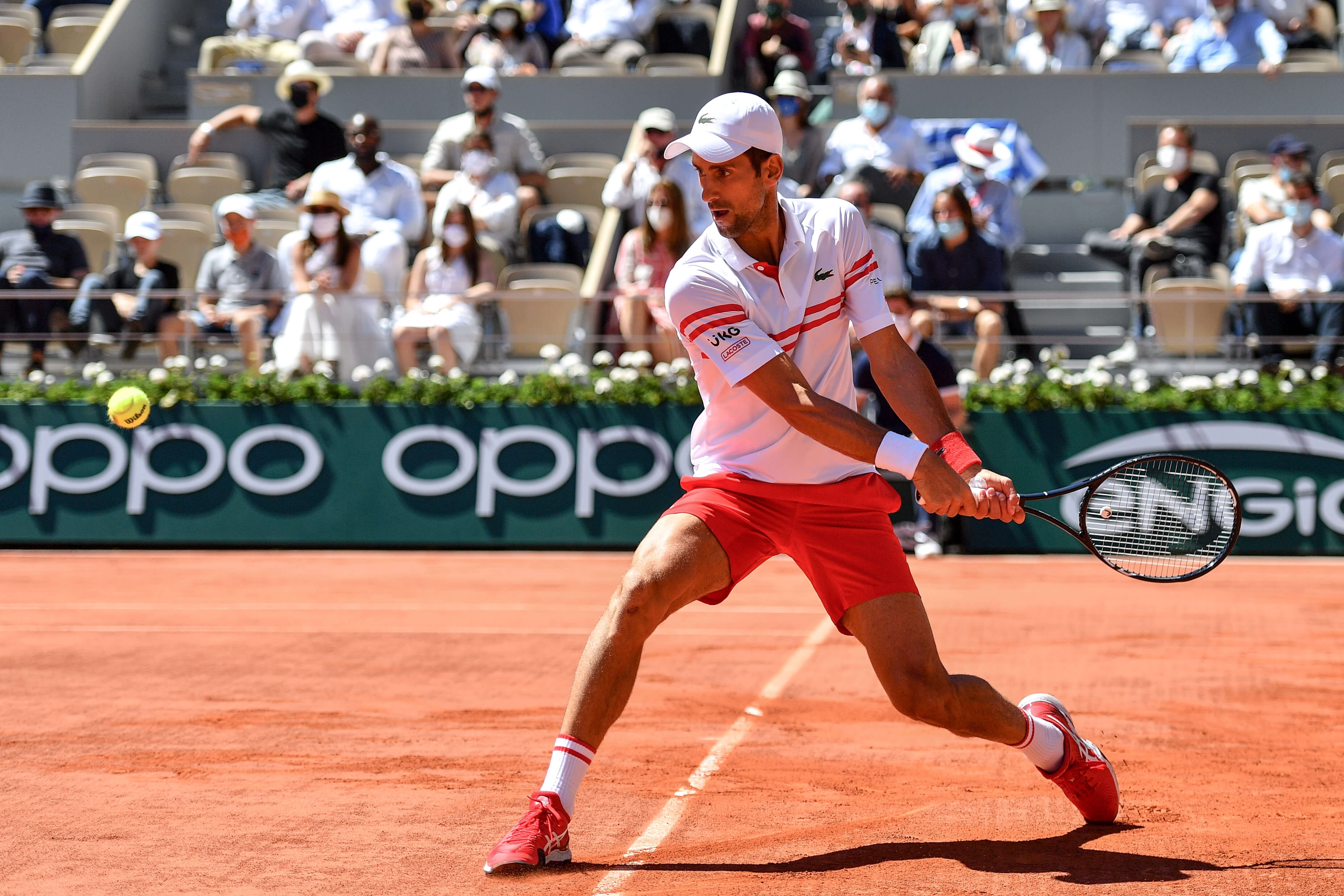Artificial Intelligence study uses facial coding technology to reveal our emotional responses to watching sports
Formula One was found to be the most shocking sport to spectate, while equestrian events were revealed as the most tense
Gymnastics beats football as the most engaging sport to watch

In a new Emotion AI study from Freeview, tennis has been found to be the most euphoric sport to watch at home. The study used ground-breaking Emotion Artificial Intelligence facial coding to decipher the expressions of participants as they watched sports on their home devices.
The other sports to spark a strong euphoric response were gymnastics (15 percent), football (13 percent) and cricket (13 percent) but tennis topped the rankings at 18 percent, which is 50 percent more than the average level of happiness detected when watching standard video content.
The study was commissioned to celebrate a spectacular summer of sport which includes the ‘big four’ returning to our screens – Wimbledon, the Euros, Tokyo Olympics and Paralympics, as well as the Lions Tour. With so many live sporting moments this summer, the results will go some way to helping those Brits who are spoiled for choice, or those who do not know where to begin.
The calmer, more routine-based Olympic sports were found to be among the most tense such as equestrian (29 percent), synchronised swimming (28 percent) and gymnastics (25 percent). These sports held the highest quality of attention throughout, with Brits remaining glued to each precise detail of the routines.
Formula One took first place for the most shocking sport to watch (11 percent), due to its eye-watering top driving speeds of 220mph and proneness to crashes. In comparison to standard video content, Formula One produced a shock response 83 percent higher.
Synonymous with the expression of surprise, shock can be triggered on the AI software by movements such as sudden wide eyes and the dropping of the jaw. Fans of the sport will remember Romain Grosjean’s terrifying crash last year, which saw his car burst into flames at the side of the track before he managed to escape.
Gymnastics was found to be the most engaging sport to watch (26%), beating the likes of football (23.8%) and athletics (21.9%). Despite a record breaking 42 million people tuning in to the Euros final, - 31 million viewing on TV and a further 11 million following the game online – the facial coding revealed that it was gymnastics that managed to keep viewers most engaged, with the audience showing the widest range of expressions as they watched every leap and tumble.

Watching boxing generated the most powerful feelings of disgust (5 percent), as viewers cringed away from severe knockouts and excruciating punches. In fact, boxing generated feelings of disgust 150 percent greater than when watching standard video content. With 11 British fighters securing Tokyo 2020 qualifications, the Olympic Games are set to put on an exciting show in both the men’s and women’s categories.
Tennis was found to be the least confusing sport to watch (3 percent), while Formula One sat at the other end of the spectrum as the most confusing (12 percent). Shown by the narrowing of the eyelids and furrowing of the brow, confusion is likely to be felt towards more complex sports, particularly those which we’ve had less access to in childhood and everyday life.
Owen Jenkinson, Marketing Director at Freeview, said “With some of our favourite sports returning to our TVs this summer, Freeview households across the UK will be able to share in the emotional highs and lows of all the memorable sporting moments. However, with so many live moments to choose from, there’s bound to be a few lively debates over what makes it to the big screen, we hope that knowing a little more about how we emotionally respond to each sport will help viewers choose.
From Wimbledon to the Olympics, the Euros to Formula One, we’re extremely proud to be able to offer coverage of so many fantastic sporting events this summer, all free to watch without any paywalls or subscription fees.”
With hundreds of hours of live and on-demand sporting content available to watch over the next few months, viewers with Freeview Play TVs will automatically have access to their favourite games and events.
Looking at demographic breakdowns for each sport, there are certain splits between age groups. Older viewers, consisting of 40+ year olds, felt the most contempt (10 percent) while watching football.
Younger viewers (18-39 year olds) felt the strongest fear while watching rugby (15 percent). Full of forceful tackles, painful injuries and nail-biting conversions, rugby is certainly one of the scarier sports to watch, triggering the corners of the eyelids to raise and the lips to stretch to resemble fear.
The type of Emotion AI technology used in this study has been employed in various industries to gain valuable information about the emotional spectrum of consumers, including human resources, driving assistance, healthcare and marketing. Where written surveys can only produce surface-level statistics, this type of AI is able to tap into the unconscious and glean rich data which may be unknown even to the participants themselves.
To apply this complex form of coding, Freeview teamed up with RealEyes – the tech pioneers who run the system and analyse the results. Their emotion recognition software tracks and decodes facial expressions using action units (AU) to categorise human emotions according to changes in the eyes, eyebrows, nose and mouth. Through computer vision and machine learning, the technology is taught to recognise even the subtlest of changes in expressions, and associate them with the correct emotion.
Tokyo Olympics (BBC)
Paralympics (Channel 4)
Cricket: The Hundred (BBC)
Cricket: England Home Summer Series (BBC)
Darts: World Series (ITV)
Formula One (Channel 4)
British and Irish Lions Tour (Channel 4)



